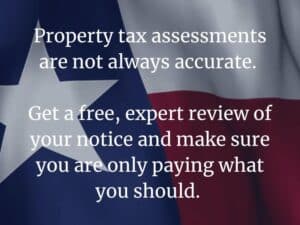Many Texas property owners hesitate to protest their property taxes out of fear it might come back to haunt them in the future. Understanding that protesting can have a significant property tax protest impact is critical, as will a successful appeal this year cause your home or commercial building to be targeted for higher appraisals next year? The truth is more nuanced than most people realize.
At TexasPVP, we believe informed property owners are empowered ones. This guide explores how a protest might influence future valuations and why the potential savings usually far outweigh the perceived risks.
Understanding How Appraisals Work in Texas
Each year, county appraisal districts (CADs) are required by law to appraise property values based on market conditions and comparable sales. This process is done independently of whether or not you protested the previous year. The goal is to assess properties fairly and uniformly based on current data.
In other words, protesting this year does not automatically mean your value will increase next year. CADs don’t punish owners for protesting they’re simply required to reassess based on updated market information. The property tax protest impact isn’t personal; it’s procedural.
When Protesting Might Affect Future Valuations
While your protest itself doesn’t trigger a penalty, certain factors associated with the protest can influence future appraisals:
- Submitted Documentation: If you provide photos or evidence of deferred maintenance, the CAD may note the condition for future appraisals. If the property is later improved, the value may rise.
- Corrections to Data: If your protest reveals errors in square footage, building type, or other characteristics, those corrections stay in the record and can influence next year’s value.
- Market Recovery: If your property was devalued due to a temporary issue (like storm damage), it may increase once the condition is resolved whether you protested or not.
Why the Fear of Reappraisal Is Often Overblown
CADs are required to follow standards of equity and uniformity. They don’t arbitrarily raise values as retaliation. In fact, many property owners who protest regularly continue to save year after year without penalty.
Additionally, failing to protest can result in significantly inflated valuations going forward. Once a high assessed value is on record, it often becomes the baseline for future years. The long-term property tax protest impact can be mitigated through strategic protests now to help correct the baseline before it compounds.
The Smart Approach: Consistent, Strategic Protests
Rather than worrying about future appraisals, it’s smarter to:
- Review your valuation every year
- File protests when the data supports a reduction
- Work with experts like TexasPVP to build a strong case
When handled professionally, a protest helps you stay aligned with market value not above it.
How TexasPVP Protects Your Long-Term Interests
We don’t just focus on this year’s appeal. Our approach is designed to protect your long-term valuation:
- We document everything clearly and accurately
- We review CAD records for errors and inconsistencies
- We advise on what evidence to share (and what not to)
- We advocate for fairness while minimizing exposure
Our goal is not just to win your case this year, but to create a strategy that benefits you every year you own the property.
Final Takeaway: Don’t Let Fear Keep You From Saving
Protesting your property taxes is your right and when done correctly, it won’t lead to future penalties. The real danger lies in overpaying year after year because of myths and misunderstandings.
At TexasPVP, we help you protest with confidence and clarity, knowing your current and future interests are protected, and minimizing the property tax protest impact risks.
Ready to take control of your property taxes? Let TexasPVP guide you through a smart, risk-aware protest today.






